#FSYALit: Muslim Representation in YA Lit, a guest post by Kaye M
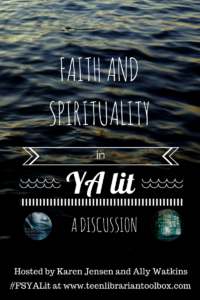 Today for our ongoing Faith and Spirituality in YA Lit Discussion, we are honored to have Kaye M discussing Muslim Representation in YA Lit. You can find all of the #FSYALit Posts here.
Today for our ongoing Faith and Spirituality in YA Lit Discussion, we are honored to have Kaye M discussing Muslim Representation in YA Lit. You can find all of the #FSYALit Posts here.
“So, are there any books about girls like you that you could recommend?”
My Catholic best friend posed this question to me very early on in our friendship. We’d met in the library, and our hour-long discussions over the phone centered on our shelves – Lord of the Rings, why neither of us had read Harry Potter yet, Howl Pendragon and C.S. Lewis and everything wild and magical and fantastic that we had enjoyed or had yet to explore.
ADVERTISEMENT
ADVERTISEMENT
It shouldn’t have been entirely surprising, considering that we both hailed from different, albeit monotheistic faiths, that we’d have conversations about worlds of faith alongside worlds of fantasy.
If anything, it wasn’t the question that caught me off-guard. It was the few moments of silence on the line where I paced and wracked my brain for more than one or two titles to toss out.
And I couldn’t find any.
I’ve spoken on this during my participation with #WeNeedDiverseBooks, but there was a definite point in my childhood when I acknowledged and realized that there was an empty space on the shelves where I couldn’t find myself. I’ve been told, more than once, that if I had a better imagination, I could read my favorite characters as Muslim – and I’ve tried, but it’s so hard when you know these characters aren’t coded for you.
(I didn’t know about the wonderful thing that is headcanons and fanfiction then, but even now, as demonstrated within the Harry Potter fandom with the often-challenged Muslims in Beauxbatons headcanon, you see these attempts to find yourself within your favorite book slammed down. Even that approach is not enough and doesn’t fill the gap where you weren’t represented or thought of.)
When I was in middle school, one of my mom’s friends – then a Muslim English teacher in one of the largest madrasahs in Brooklyn, NY – pressed Judy Blume’s Are You There, God? It’s Me, Margaret on me, because it was the closest title she’d found to what the young girls in her lives craved: a protagonist like them, exploring faith and friendship and her own adolescent identity.
Coming from a family where I had both the “Muslim side” and the “Christian side” (as my mother is a convert and my grandparents are Baptist), Margaret’s struggles to ground herself rang true and strongly within me. But it wasn’t enough.
And, as I mentioned already, I wasn’t entirely a contemporary girl. If anything, the lack of Muslim protagonists anywhere but in stories where they were overtly presented as villains, oppressed war-torn victims or else blurred figures walking down a NYC street to fill the quota of America’s rich melting pot, convinced me that we weren’t important enough to be written about.
I wasn’t important enough to have adventures like Alanna, or the Pevensies, or even Hermione Granger.
It wrenches my heart when I look back at myself, and how my mother tried to coax me to slide more girls of my own faith into my fiction. Of course, there were the added complications and fears of growing up in a very Islamophobic, post-9/11 America. Even as I developed as a writer and realized that I was meant to work in books in some form, I continued to do everything in my power to avoid everything that might be read too deeply into.
I very much felt the position of being the stereotyped, hated “other”.
Islam, particularly in recent years, has been misunderstood and warped by the representation it receives in media. It is one of the world’s largest religions, but when I strike up a conversation with an average stranger (mind you, usually started off the phrase, “Aren’t you hot?” or “Does your father make you wear that?”), I’m always saddened to find that they know little to nothing about my faith beyond what they believe it is about, thanks to the actions of extremists who use it for their own evil agendas.
I’m firmly in the camp that bad representation is worse than no representation at all. I’ve been facing its effects for my entire life. In YA representation, we have the dubious pleasure of hardly being represented at all, but I’ve always been tired of being pointed to the sidekick in John Green’s An Abundance of Katherines, for instance, to satisfy my need to see myself in a fictional narrative.
Of course, I must add the caveat that I’m speaking mainly from the perspective of mainstream publishing. There have been Islamic companies who have attempted to provide representation. I grew up on series like Invincible Abdullah and Ahmad Deen that could not be found in major bookstores, but still had their important position on my shelf.
(The author of Ahmad Deen in particular, Yahya Emerick, also wrote Isabella, which is one of the best Muslim YA perspectives on the Spanish Inquisition I’ve ever encountered.)
But these voices were just a drop in a bucket, and they weren’t readily available.
My faith doesn’t entirely define me, but it is a large, crucial part of my identity. It’s formed the way I’ve grown up, how I’ve interacted with people, and the morals my parents have instilled in me. I know that other readers, both hijaabis like me or non-hijaabis, have felt the same hunger, and I feel that small roles or that of the Arab-coded “bad guy” are not what we deserve or who we are.
 That said, I do feel that times are changing. There are Muslim writers that I can name off on more than just one finger. We’ve had discussions and like #MuslimWomenArts and an annual Muslim Protagonist symposium at Columbia University. We have our own superhero that is celebrated by others outside of our faith or experiences!
That said, I do feel that times are changing. There are Muslim writers that I can name off on more than just one finger. We’ve had discussions and like #MuslimWomenArts and an annual Muslim Protagonist symposium at Columbia University. We have our own superhero that is celebrated by others outside of our faith or experiences!
I can go on about Kamala Khan for hours – my particular tag for anything discussing her on one of my blogs is, “She came to show us Muslim girls can be heroes” – but her presence is proving that diversity is beautiful, our stories are universal and, yes, Muslim girls can be heroes and save the day just like any of the other protagonists I read about and loved in middle school.
Kamala Khan, a.k.a. G. Willow Wilson’s Miss Marvel, would be one of my first recommendations for a perfect example of a Muslim in pop culture. Kamala explores her faith and what it means to be a Muslim in such an engaging and heartfelt way. I love how she has intellectual, respectful discussions with her local imam and how her parents don’t fall into that cold, dismissive trope that so many people seem to think Muslim families fit into.
One of my favorite sequences of panels (that I often like to post when a tragedy occurs) comes from the second issue, where Kamala quotes a particular verse from the Qu’ran that sums up Islam’s love for humanity and universal peace:
“Whoever kills one person, it is as if he has killed all of mankind…and whoever saves one person, it is as if he has saved all of mankind.”
It’s just beautiful, and unlike many concerns about expressing religion openly in YA literature, it is not heavy-handed or preachy.
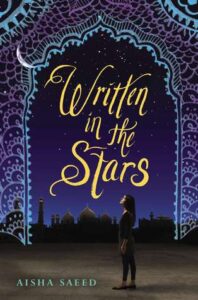 Another title I’ve been gushing over recently is Aisha Saeed’s Written in The Stars. I admire Aisha very much. We worked together at one point on the #WeNeedDiverseBooks team, and I’ve personally adopted her as my big sister. Her dedication to honestly portraying the heartbreak and unfairness of forced marriage through Naila – and in providing enough research and background, along with a voice as a Pakistani-American Muslim woman, to underscore that this is a cultural issue and not a religious one – shines through in the text and the plot.
Another title I’ve been gushing over recently is Aisha Saeed’s Written in The Stars. I admire Aisha very much. We worked together at one point on the #WeNeedDiverseBooks team, and I’ve personally adopted her as my big sister. Her dedication to honestly portraying the heartbreak and unfairness of forced marriage through Naila – and in providing enough research and background, along with a voice as a Pakistani-American Muslim woman, to underscore that this is a cultural issue and not a religious one – shines through in the text and the plot.
It is not a scenario that every Muslim or Pakistani girl will face, thank goodness, but she gives weight to an important voice within the narrative and issues that should be acknowledged. Just Aisha’s presence online and in the book community as a Muslim author is a very important one.
And speaking of voices, I am very excited from a debut title from a non-Muslim author: Scarlett Undercover by Jennifer Latham, which is dropping this coming May. Scarlett is a Somalian-American detective – in the vein of Veronica Mars! – and not only has Jennifer spoken about her time and effort to making sure Scarlett is as respectful and authentic as possible, Scarlett will be representing a group of Muslims that are hardly given acknowledgement in media.
I tried to hold myself to three, but there are a few other titles that, like Scarlett Undercover, I haven’t read yet but hope to read at some point.
 A fairly anticipated title on my reading list is She Wore Red Trainers by Nai’ma B. Roberts, which pitches the idea of a “Halal” romance. I know a few friends were worried that this would go the way of the saccharine, preachy titles everyone always seems to equate with faith in fiction, but thus far the protagonists are both imperfect, realistic young Muslims trying to find their own identities while seeking a way to be together.
A fairly anticipated title on my reading list is She Wore Red Trainers by Nai’ma B. Roberts, which pitches the idea of a “Halal” romance. I know a few friends were worried that this would go the way of the saccharine, preachy titles everyone always seems to equate with faith in fiction, but thus far the protagonists are both imperfect, realistic young Muslims trying to find their own identities while seeking a way to be together.
I’ve heard good things about I Love I Hate I Miss My Sister by Amelie Sarn, which is written by a non-Muslim French author, and focuses on the tension between sisters when one chooses to become religious and the other does not.
There is also Sabaa Tahir, another friend and 2015 debut whose fantasy (An Ember in the Ashes) is not Islamic in its nature or theme. However, Sabaa herself stands as another exciting voice in the community and for diversity. The fantasy loving girl in me is absolutely thrilled to read it.
There is Randa Abdul-Fattah’s classic Does My Head Look Big In This?, which I have not properly read for myself but was a bone of contention between several friends during my high school years on the example it gave for Muslim girls in America.
There is Patricia Dunn, who is a Muslim convert and the author of Rebels by Accident. There is Sara Farizan. On the middle grade spectrum, there is Rukhsana Khan’s star-studded line of works, and Farhana Zia’s In The Garden of My Iman, another title I plan to scope out for the students I occasionally teach in the local Islamic summer camp.
And I won’t even get started on the talented Muslims I know within the writing community that don’t have a book deal yet for me to eagerly await and promote. We are legion. We are ready to change the narrative for the better.
That is another topic within the issue of Muslim representation. Islam is not a monolith. Everyone has a different experience, and a different narrative.
One story does not fit all, by any means. I want to see more of those cultural variations, both in emerging voices and in the protagonists developed on paper. I want to see more contemporaries, but I also would love to see more fantasies, adventures, sitcoms, even cozy mysteries and hilarious coming-of-age dramas that don’t just involve agonizing over wearing the hijaab.
There’s this perception that Islam equals Arabia first, and then South Asia, and (particularly as a biracial girl with a wide friend circle) I feel that definition is both stressful for people of those backgrounds and narrowing for other Muslims who aren’t represented.
Muslims are a beautiful example of diversity, in ethnic background and in practice, denomination and interpretation. The essence of our faith rests in diversity and universal humanity, on bonding through similarities instead of being forced away from each other due to perceived differences.
As we continue to advocate and encourage diverse voices to add their stories to the shelves, I hope we will see more of a broader spectrum of Muslim experiences and backgrounds. I eagerly look forward to it. To me, being able to reclaim our fictional narrative means a change in perspective, a refuge, and hope for the future.
Kaye M. is an English major and MLIS hopeful, and a former member of the We Need Diverse Books campaign team. When she is not advocating diversity and feminism online, she is hard at work on adding her voice to the growing list of authors within the Muslim YA canon and obsessing over tea, magical girls, Studio Ghibli and lip colors. She is an occasional book blogger at Watercolor Moods.
Filed under: #FSYALit, Faith, Spiritual Life, Spirituality
About Karen Jensen, MLS
Karen Jensen has been a Teen Services Librarian for almost 30 years. She created TLT in 2011 and is the co-editor of The Whole Library Handbook: Teen Services with Heather Booth (ALA Editions, 2014).
ADVERTISEMENT
ADVERTISEMENT
SLJ Blog Network
2024 Books from Pura Belpré Winners
In Memorium: The Great Étienne Delessert Passes Away
Winnie-The-Pooh | Review
Parsing Religion in Public Schools
ADVERTISEMENT


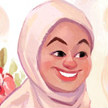

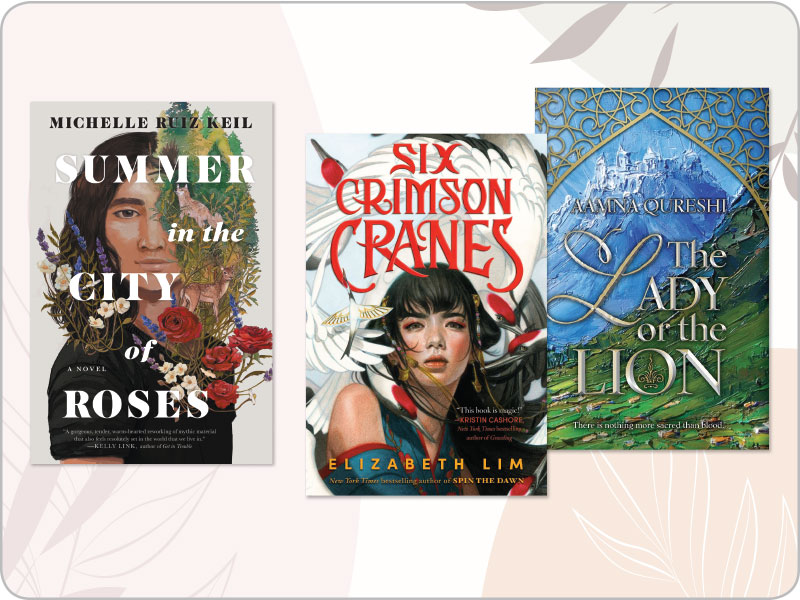
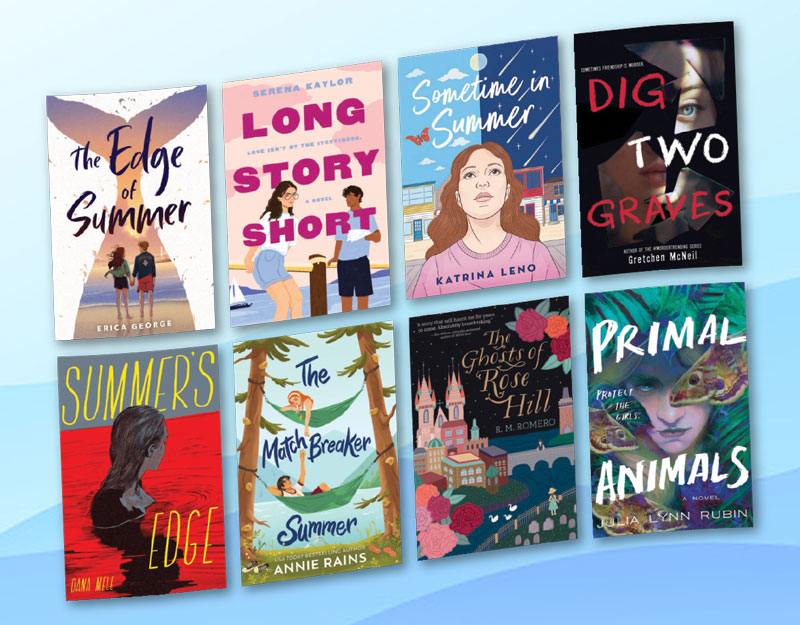
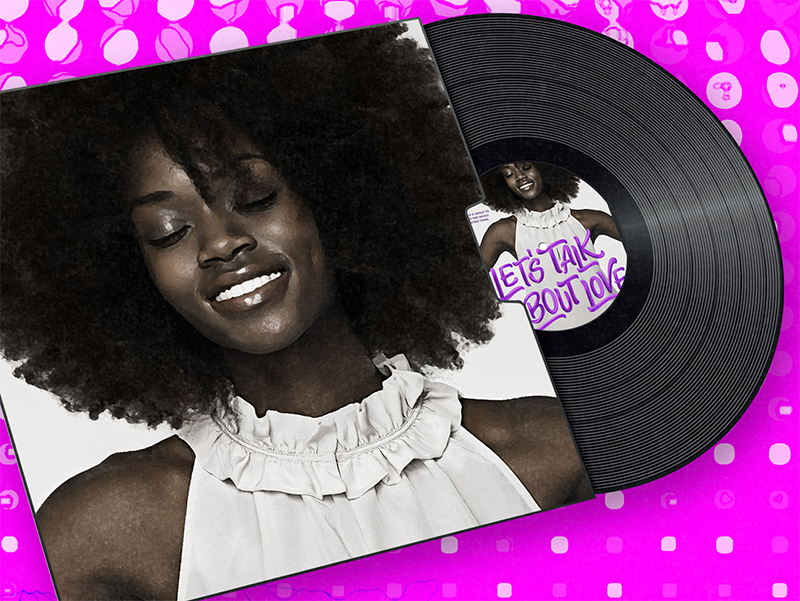
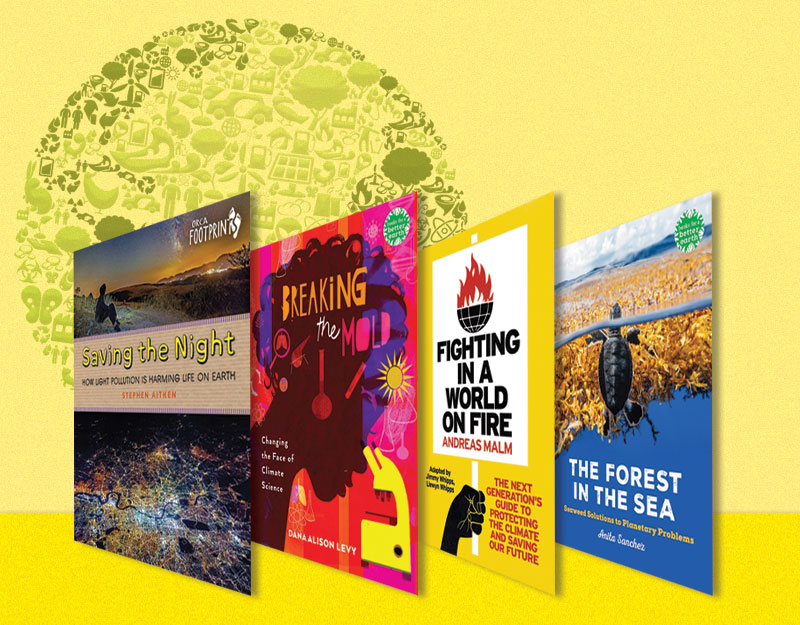
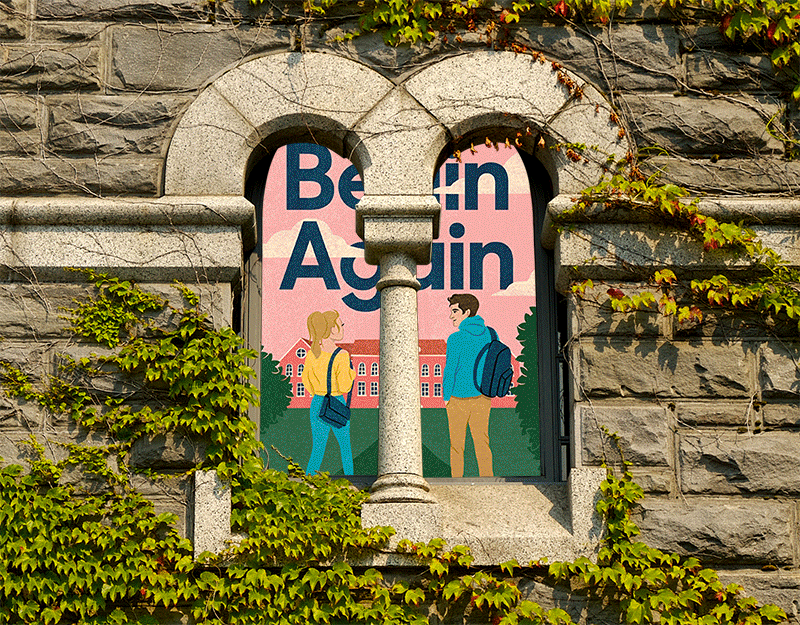
Kaye, as another fantasy lover, I especially look forward to more fantasies about magical girls from Muslim authors (including you!).
You are so, so sweet, Kell! <3 Thank you!
Kaye, I could kiss you.
I’ve been waiting for something like this for a long time, and clicking the link that Scott Westerfeld tweeted has ended that wait. As a teenage writer, also Muslim, I’ve made it my goal to have published at least one book, and one book that includes much diversity. I’m happy to say that this book is 15,000 words in, isn’t focused on religion as its main issue (in fact, it’s sci-fi!) and includes a pair of Iranian twins.
And I think you’ve just inspired me to write a few thousand words more.
So thank you! And keep reading. 😀
Ha ha! Thank you! <3 And thank you for letting me know to thank Scott Westerfeld for retweeting, because I had no idea he did! 😀
That is wonderful! I am very proud of you, because I love to see Muslims in all types of genres – and twins! I love twin heroes! And sibling heroes in general, really. Please keep writing! Your voice is so needed and appreciated, and I hope to one day be gushing about your title when it hits shelves.
So excited to have more to read!
Thanks, lady! <3
So glad to hear about the new Nai’ma B. Roberts title! A British author sent me a copy of From Somalis, With Love years ago, and my middle school girls love that one! Great post; I’m always looking for #weneeddiversebooks!
fascinated by the line “Whoever kills one person, it is as if he has killed all of mankind…and whoever saves one person, it is as if he has saved all of mankind.”
It’s actually a verse from the Qu’ran!
nice comment.. Kaye, as another fantasy lover, I especially look forward to more fantasies about magical girls from Muslim authors (including you!)
It’s in fact very difficult in this active life to listen news on TV, therefore I simply
use web for that purpose, and get the hottest news.